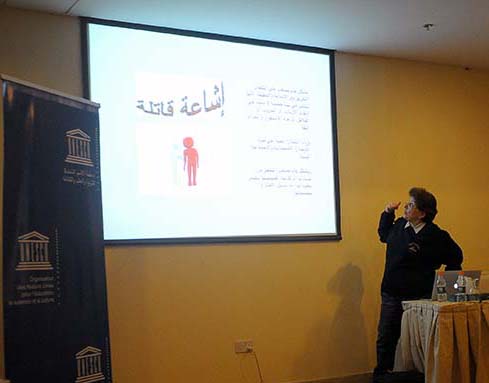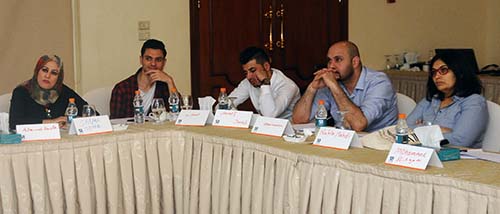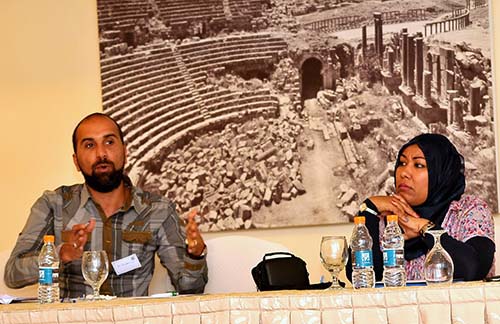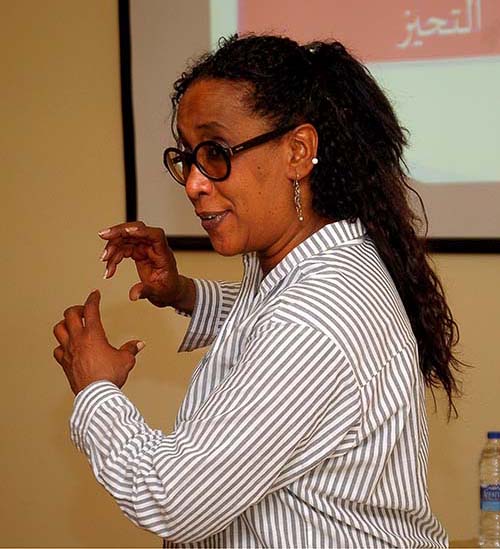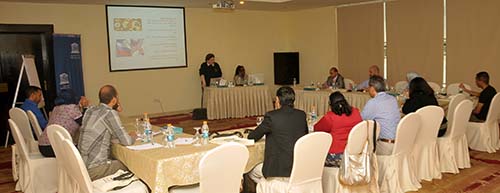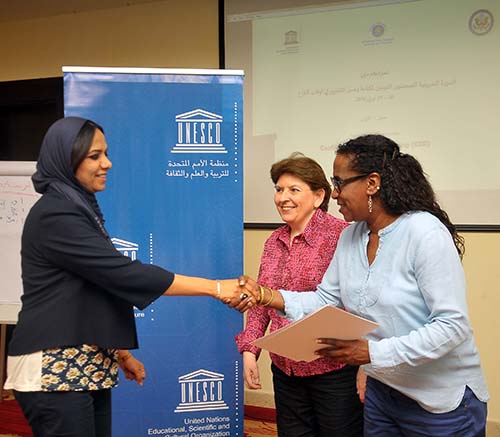Media Unlimited director Magda Abu-Fadil pulled all the stops to familiarize Libyan journalists with the concept of conflict-sensitive reporting aimed at producing a code of ethics for their country’s media.
During two training courses, Abu-Fadil focused on definitions of conflict-sensitive reporting and bias, propaganda, hate speech, rumors, pictures, images, and video clips, the pros and cons of online and social media, religious incitement, and peace journalism.
The final event, a workshop grouping some of the participants from the second training and others who complemented the assemblage, focused on hammering out a code of ethics to be adopted by Libyan media.
UNESCO’s Division for Freedom of Information and Media Development in collaboration with the Tunis-based UNESCO Libya CI focal point commissioned the work that was conducted in Amman, Jordan in April 2016.
The event followed earlier efforts by UNESCO to establish a base for media ethics in Libya. The Amman program was co-funded by the U.S. Embassy in Tripoli.
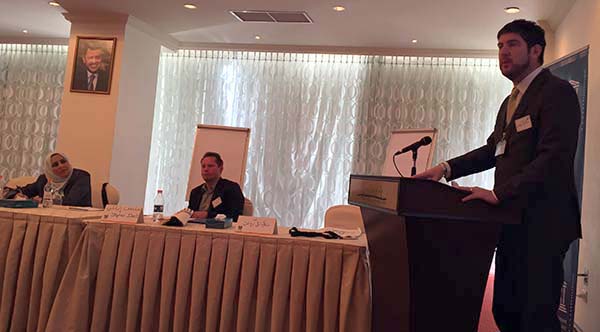
Michael Croft, UNESCO Head of Office and Representative in Libya, addresses participants as US Public Affairs Officer Stephen Ibelli (center) looks on
The journalists came from Libya, Tunisia and Egypt to Jordan. Some of the participants were already in Amman, since they work for Libyan media based in the Jordanian capital. They represented print, broadcast and online media.
The program sought to change behavior and practice in Libya’s media sector. It drew on frameworks the journalists had established and adopted in the Madrid Declaration of July 2015 issued by Libyan media managers in talks facilitated by UNESCO in Spain.
The journalists are expected to work with their peers, civil society, and local and national authorities to establish a national consensus on media practice, freedom of expression, and the role of the media in Libyan society.

